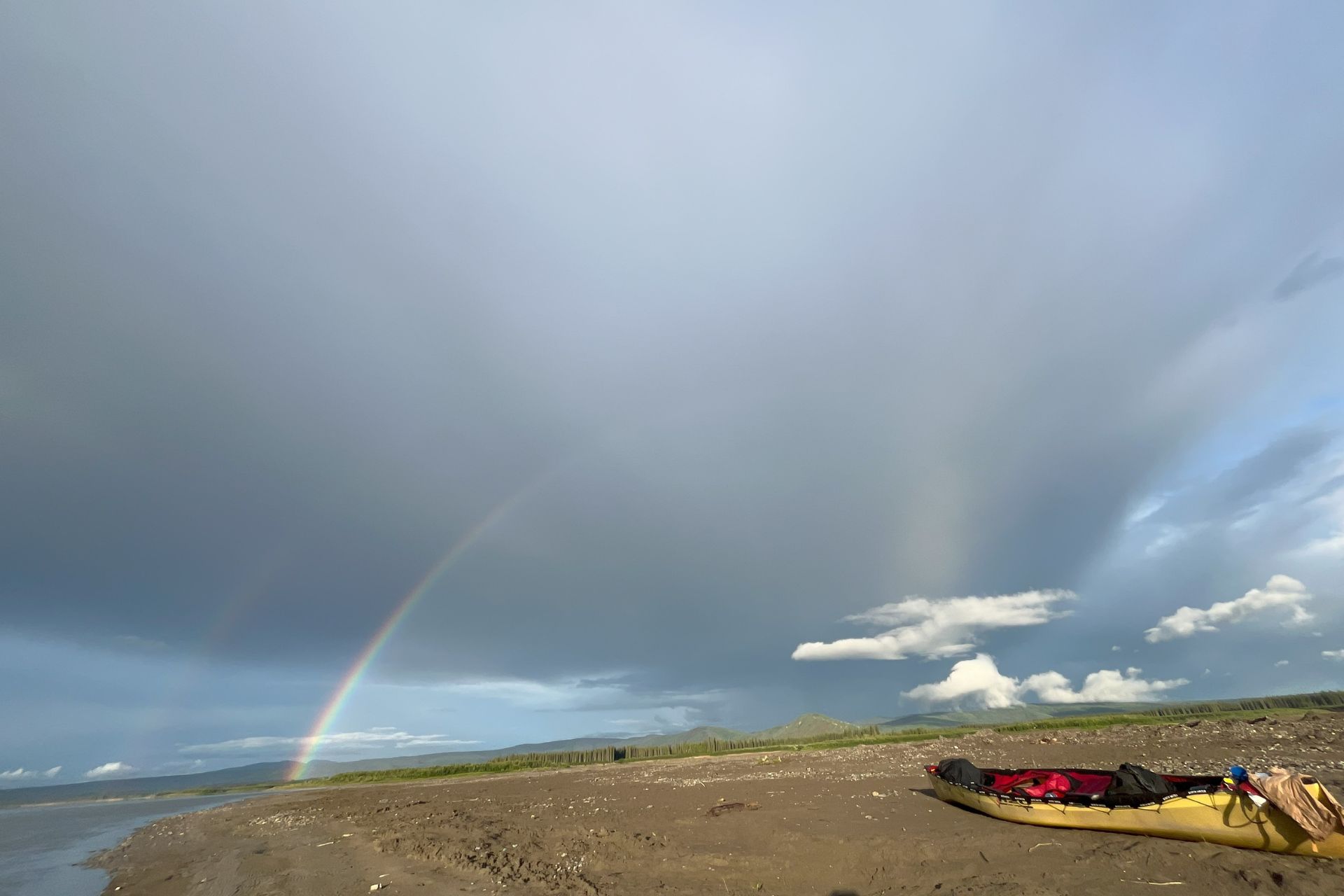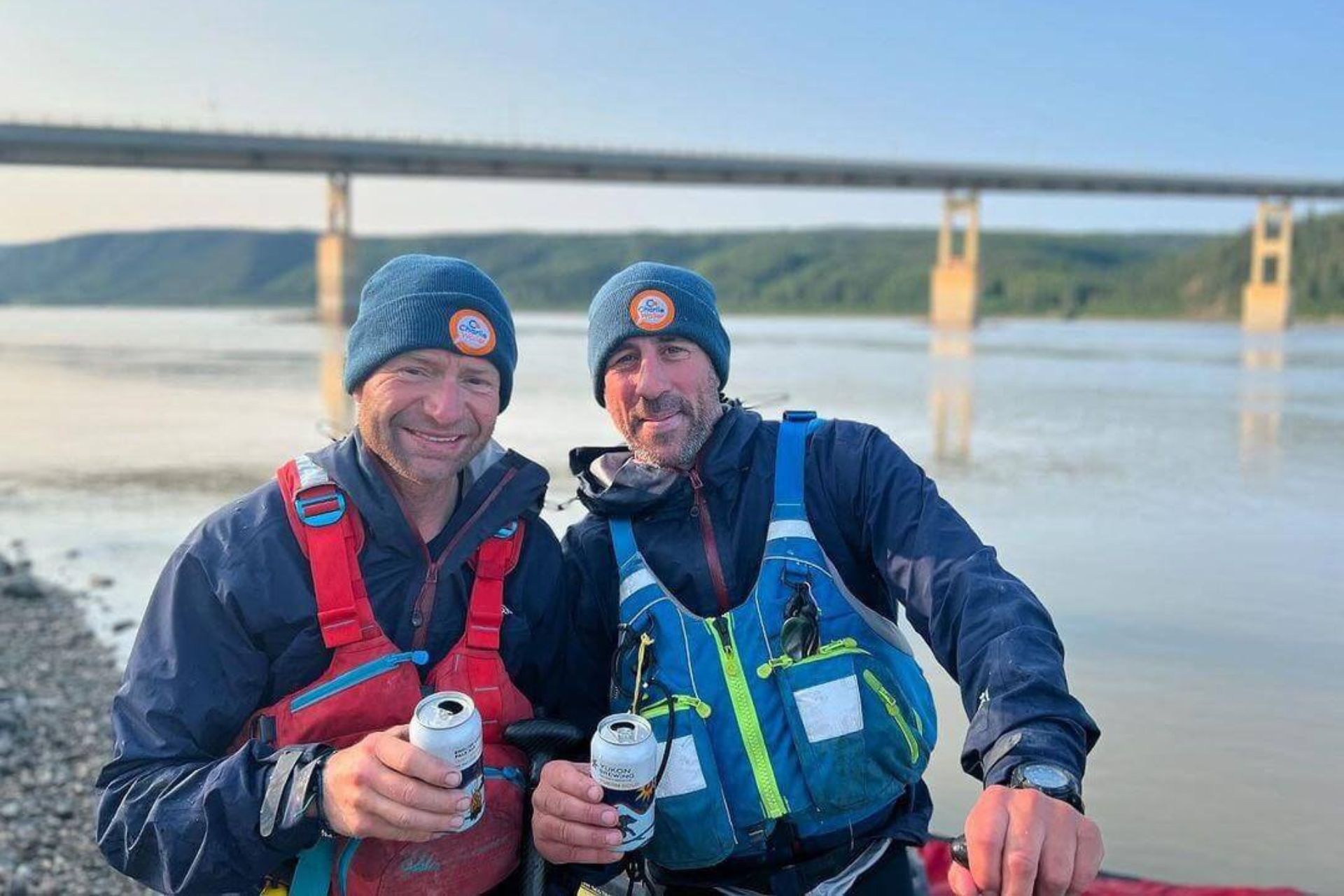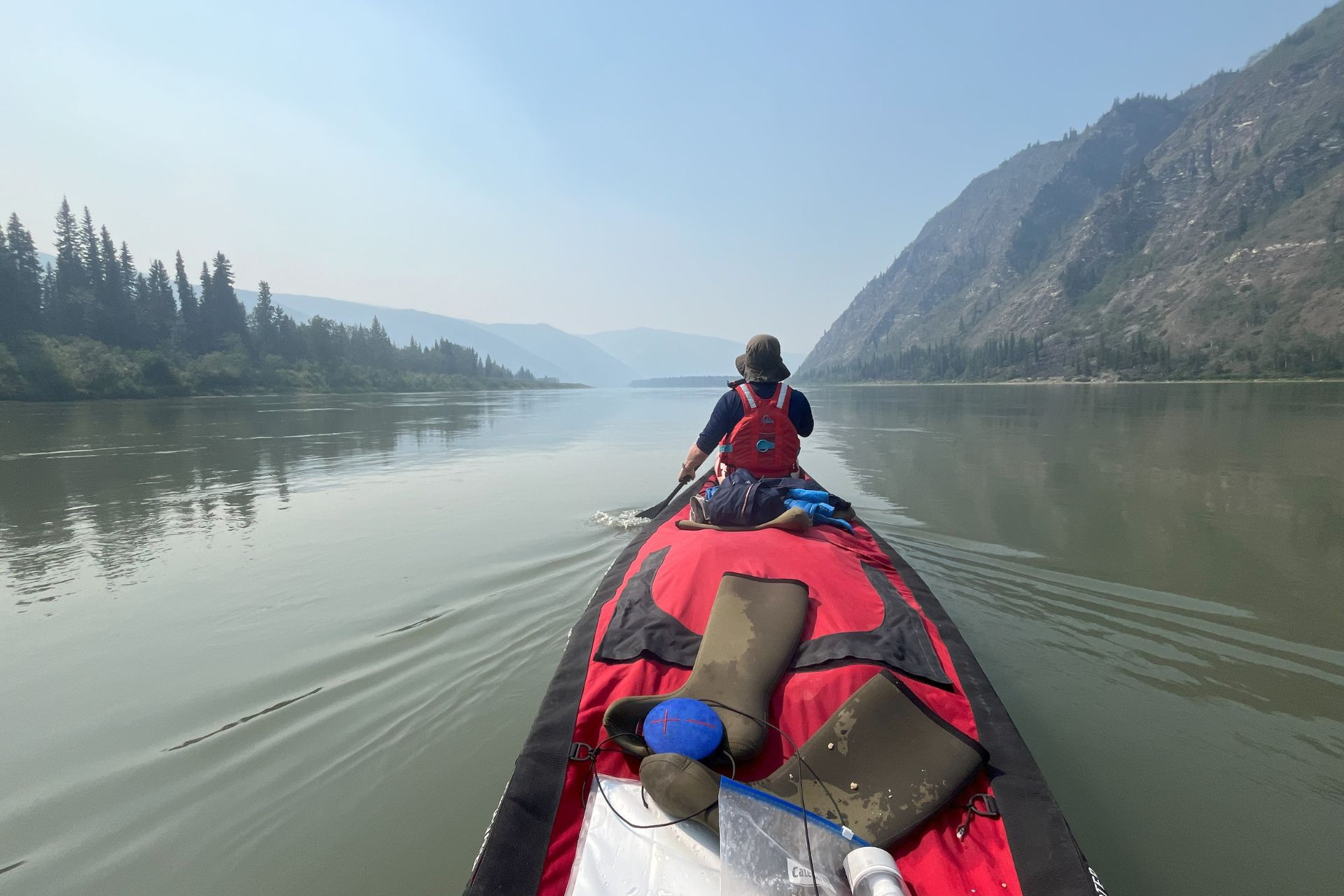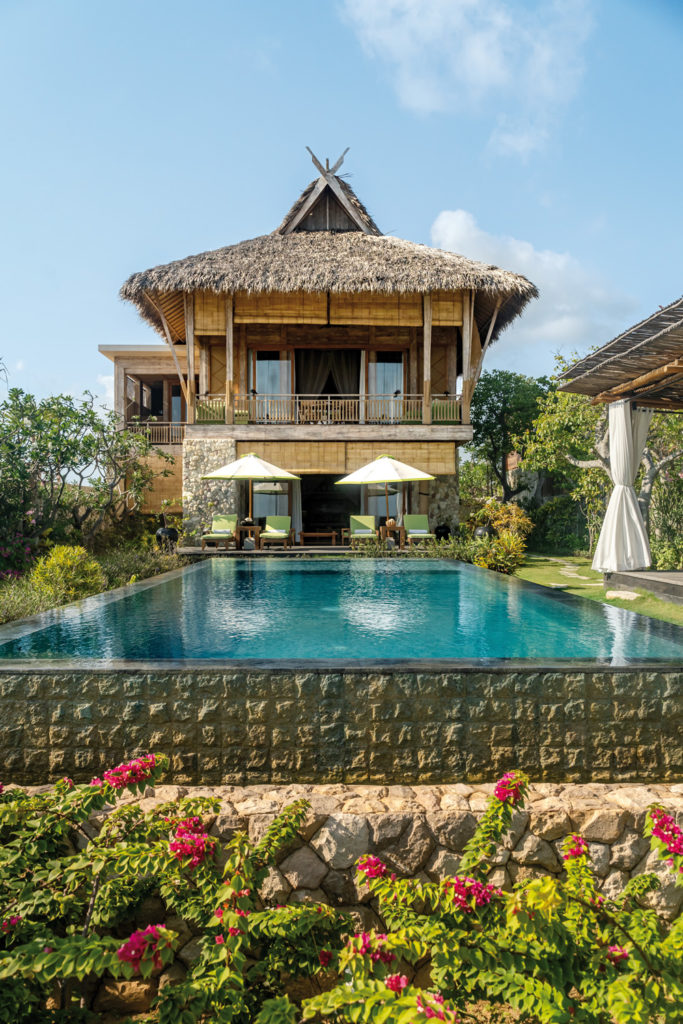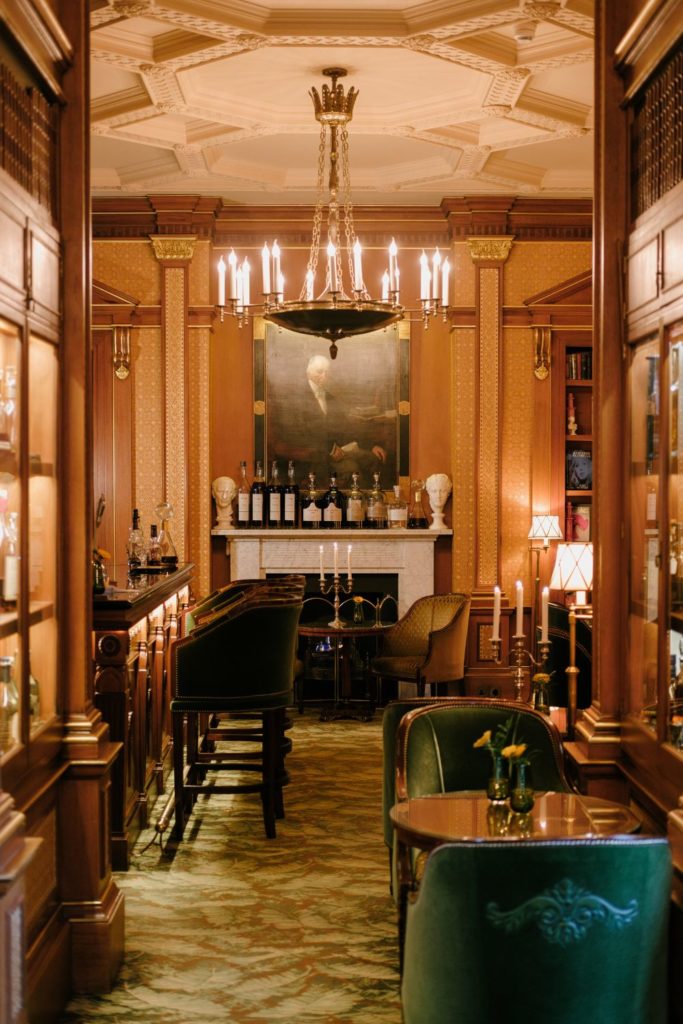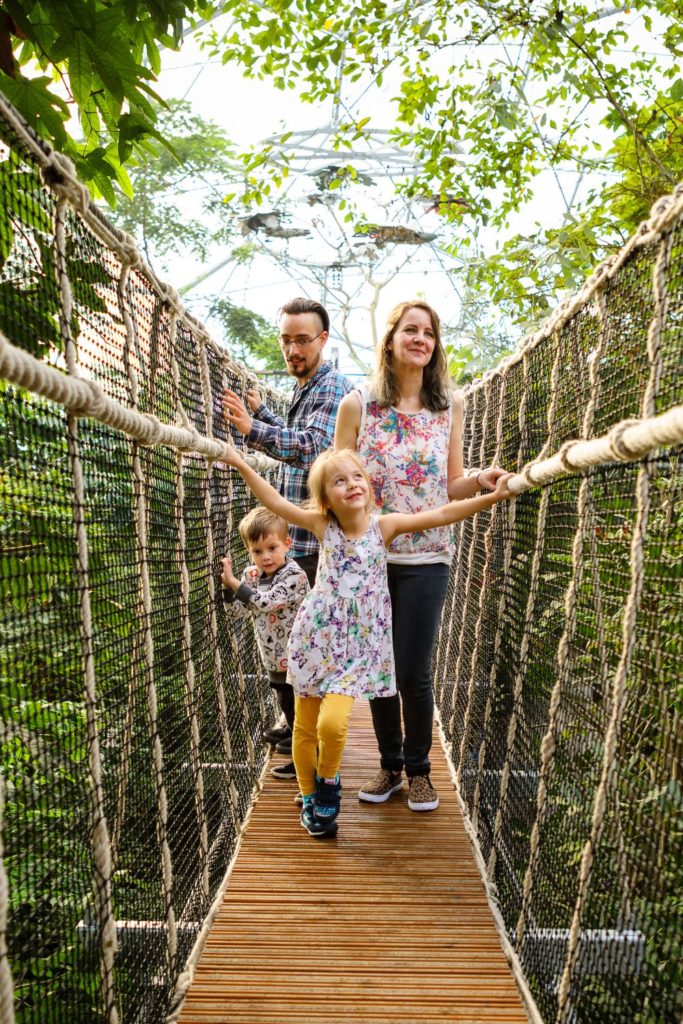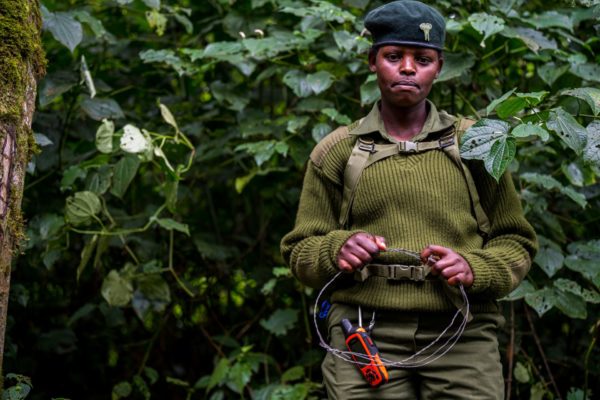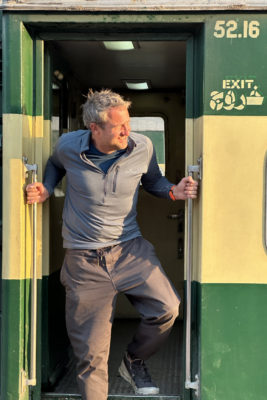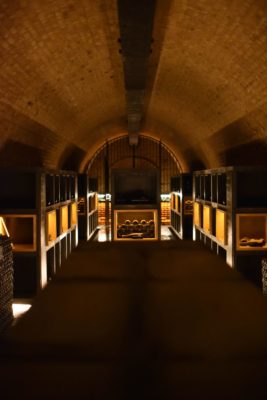What’s It Like To Tackle The World’s Longest Canoe Race?
By
8 months ago
Inside the Yukon 1000
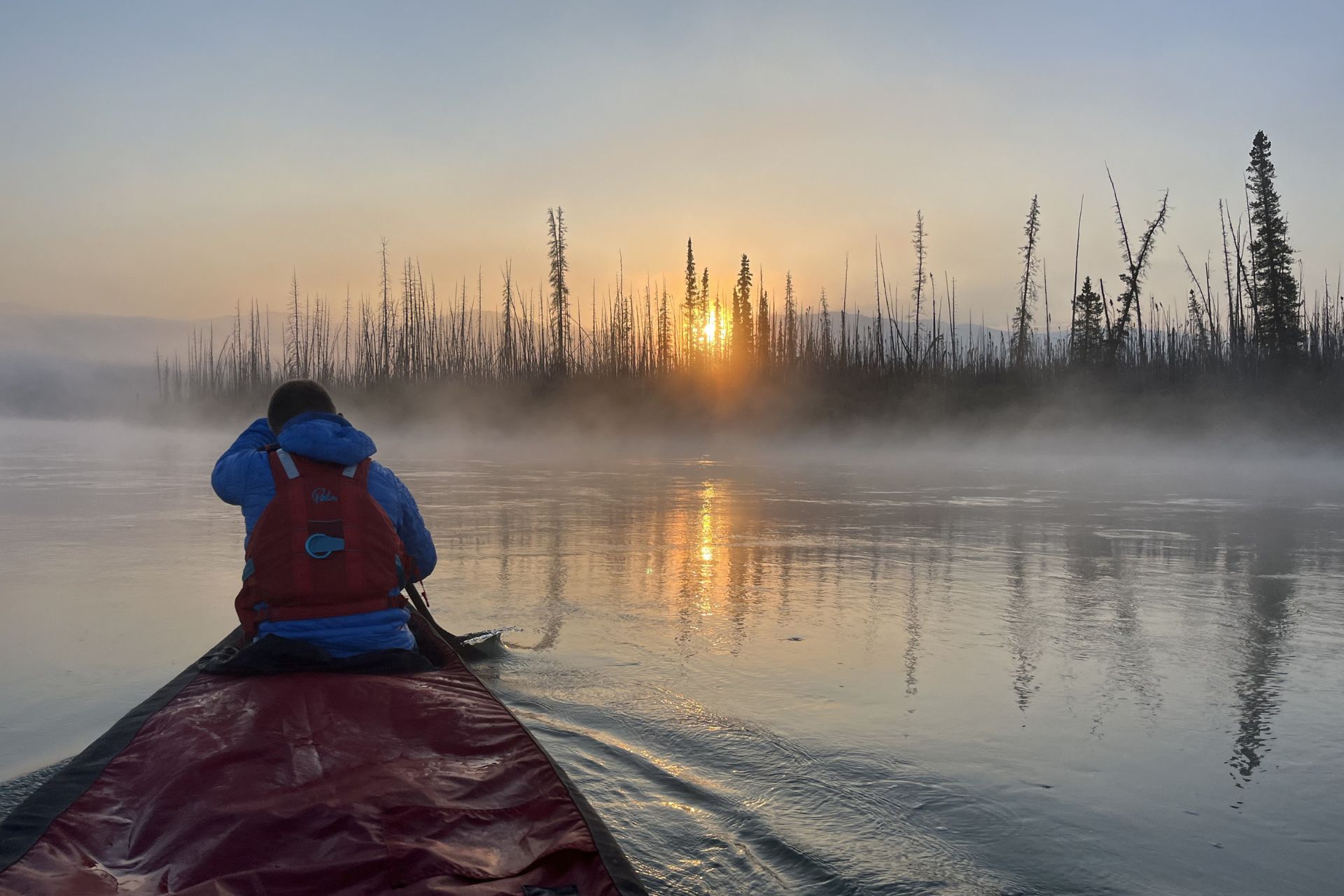
When two friends – Justin Wateridge and Charlie Stanley-Evans – took on the Yukon 1000, the longest canoe race in the world, it wasn’t just a lesson in physical survival, but mental too.
Paddling Into The Unknown: Notes From The Yukon 1000
‘Do you know how bear spray works?’
‘Yeah, I think so. Something like this…’
A loud, forceful hiss discharges bear spray into our tent. The effect is immediate: eyes stinging, throats burning, we scramble desperately to get out. The bear spray works.
This was our second night on the Yukon 1000 – a 1,000-mile paddle from Yukon Territory in northwest Canada to Alaska. It bills itself as the longest canoe race in the world. Preparing for it had taken me and my companion Charlie Stanley-Evans months: devising our nutrition plan, training in the gym, poring over maps, and putting in time canoeing the Avon, Thames and Wye.
Some of that canoeing brought… surprises. A nonplussed lockkeeper berated us for ignoring flood warnings. We inadvertently paddled into a pyrotechnic display just before it began at Warwick Castle (apologies for the delayed start of ‘The Legend of the Trebuchet’). And we had ample opportunity to bemoan the parlous state of British rivers.
Days before the start, we’d attended a race briefing where the rules were reiterated: we were to be entirely unsupported and had to stop for a mandatory six hours each night (though it never really gets dark that far north). A kit check followed – spot tracker, satellite phone, airfields loaded into our Garmins (in case of emergency landings), fire-lighting gear, bear spray, goggles (for forest fires), and a knife… presumably also for emergencies.
When race day arrived, we still weren’t sure we could do it: paddle for up to 18 hours a day, every day, for a week. Paddle, eat, repeat. Every moment had to count. When we stopped at night, we needed military-style efficiency: haul the canoe ashore, stash food in bear barrels, pitch the tent.
With less than four hours of sleep per night, the challenge wasn’t just physical; it was deeply mental. That’s why we were fundraising for the Charlie Waller Trust, a mental health charity. Taking on something like this begins with a commitment – a first step, or in our case, a first paddle. Yes, we were nervous. But in life, we rarely have full knowledge of what lies ahead. We can guess what’s around the bend, but we never truly know until we get there.
Day one saw us tackle the 35-mile expanse of Lake Laberge. It was slow, punishing going. The horizon didn’t seem to move. You need belief – mental strength – to keep going when progress is imperceptible.
But we were determined to enjoy it. This was wilderness in its truest sense – an immense landscape of raw grandeur. On day three we encountered our first bridge. It would be the only one. For the remaining 700 miles, we wouldn’t see another. (The Thames, by comparison, has over 200 bridges in just 215 miles.)
One of the joys of the Yukon 1000 is that you are entirely unsupported. You sleep where you can. We preferred islands – fewer mosquitos and, we hoped, fewer bears.
On day four, another canoe overtook us. Of the 20 teams racing, two-thirds were in faster kayaks. We pushed hard to catch them but couldn’t. It was demoralising. Why? Because we were focused on someone else, not ourselves. Life’s like that: we waste energy comparing our progress to others, forgetting that those comparisons are rarely fair – and rarely good for our mental health.
Most afternoons brought bad weather. Rain and wind lashed us for hours. These were gritty moments that tested us. Humour kept us going – not always our own (ours was running low), but that of Sorry I Haven’t a Clue. Their comic brilliance made us laugh and reminded us of the absurdity of our position.
By day six, we reached the infamous ‘Flats’, where the river fans out and navigation becomes guesswork. There are no shortcuts on the Yukon. You cannot fight the river. As in life, there are rarely easy wins.
Day seven brought us to Circle – and into the Arctic Circle itself. We were hit by katabatic winds. The canoe pitched and bucked. We wobbled too – physically and mentally. It was a day for caution. A capsize in these icy waters would have been fatal long before we reached shore. Know your limits.
We had hoped to finish that day, but it was too much. We were tired and irritable. Yet when we decided not to push for the end – and instead embraced one more night of wilderness camping – everything changed. Your decisions shape your attitude. A shift in mindset can transform an experience.
There are many lessons we took from the race. But two stand out. First: don’t be afraid to try. What we did was extraordinary. But Charlie and I – well, certainly not me – are not extraordinary people. We just gave it a go. Second: together, we are stronger. Charlie is the best person I know – and my greatest support. We all need support.
Justin Wateridge is Managing Director of Steppes Travel.


